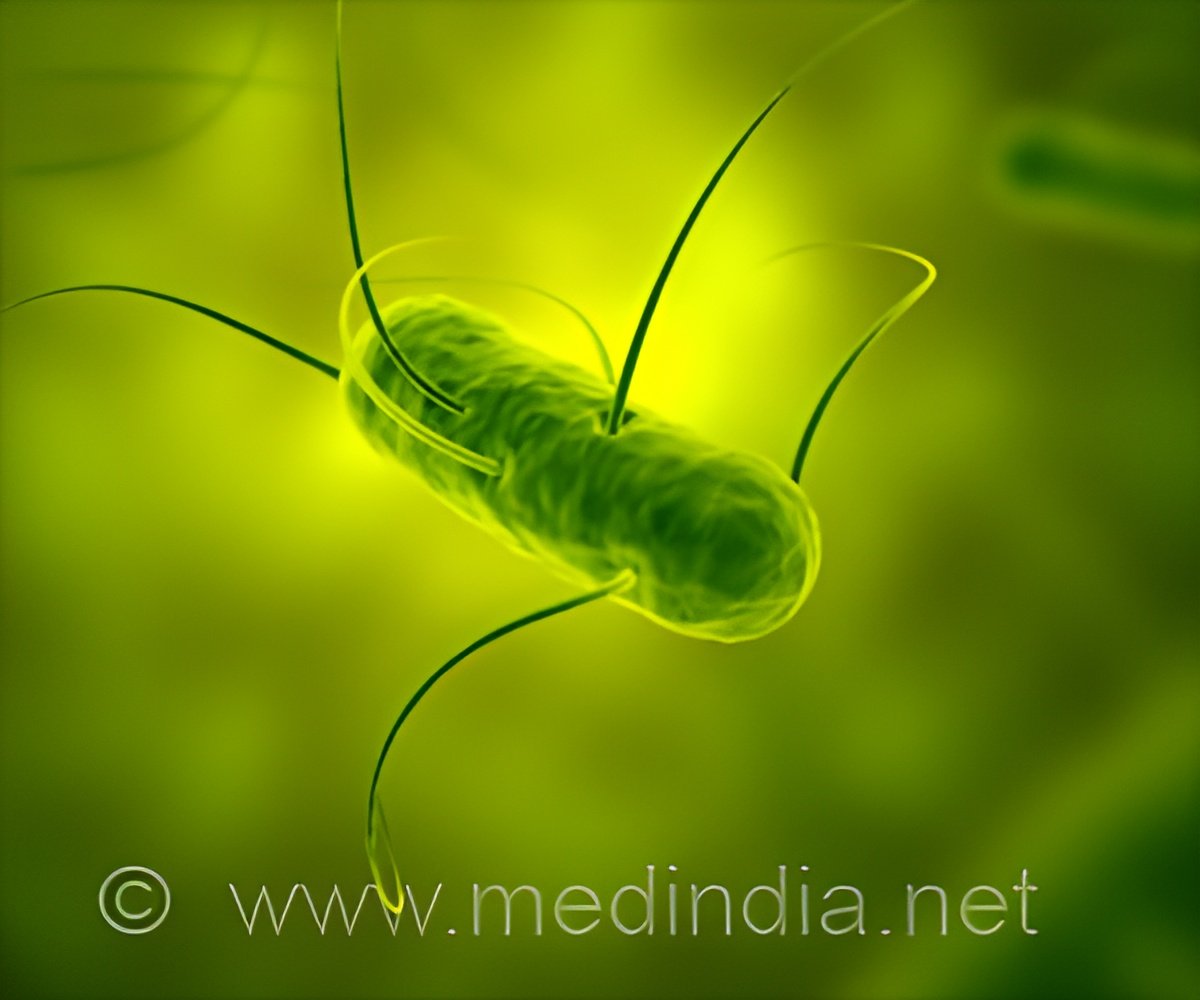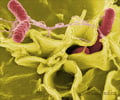Many unknown small proteins that may play a crucial role in Salmonella infection have been discovered by a team of researchers.

‘Salmonella are bacteria that can cause food poisoning with severe diarrhea. If they penetrate from the intestine into the blood system, this can lead to sepsis, life-threatening inflammatory reactions in the entire organism.
’





An international research team, led by scientists from Würzburg, shows how to succeed in this search in the new research journal microLife. More than 100 new proteins found
The small protein MgrB, which consists of 47 amino acids, stood out in the analyses. If the gene containing the blueprint for this protein is switched off, the salmonellae can no longer infect human cells.
Although the protein had been studied before, this important function had not been recognised. This has only now been achieved thanks to a new combinatorial approach. Among other things, three data sets that had been generated in earlier infection studies were used for this purpose.
Blueprint for other bacteria too?
Advertisement
The scientific community now has a priority list of previously unknown infection-related small salmonella proteins for further investigation.
Advertisement













